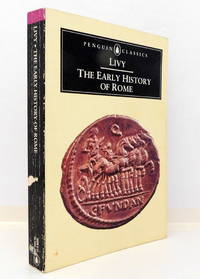
If you know me, you know I don’t have much patience for conspiracy theories. I really don’t think John Kerry and Jimmy Carter are smart enough to fix a Monopoly game, much less micromanage everything that happens, or seems to happen, in the world.
Nevertheless, I must concede there are such things as criminal conspiracies; and one of the gaudiest and most ambitious of them was suppressed by the Roman Senate in 186 B.C. We know about it from the massive Roman history written by Livy during the reign of Augustus Caesar, and from a surviving decree by the Senate officially suppressing this conspiracy ( https://en.wikipedia.org/wiki/Senatus_consultum_de_Bacchanalibus )–whose name has come down to us as “the Bacchic cult,” or “the Bacchic conspiracy.”
Essentially it was a blackmail ring. The ancient worship of Bacchus, or Dionysus, was famous for its wild orgies. The Romans in those days were a bit too strait-laced to tolerate that; nevertheless, the cult of Bacchus was imported into Rome via southern Italy. Once established in the city, it soon mutated into a rather horrible criminal enterprise.
It worked by enticing young Romans from important families into the Bacchic rites, where they would be encouraged in behavior that could get them banished or even put to death. That gave the cult a hold over you, and you had to do whatever they told you to do–including murder, theft, forgery, etc. More importantly, you had to suck other rich young Romans into the cult: so it was a kind of pyramid scheme, too.
The Senate feared that, beyond debauching Roman society and enriching itself, the cult aimed ultimately at taking control of the state. The Senate passed a decree outlawing the cult and took very vigorous measures to wipe it out. According to Livy, there were more executions than banishments: he doesn’t say exactly how many, but historians believe it must have run into the thousands.
We are free to speculate as to what would have happened, had the cult been able to recruit leading members of the Senate. Probably they tried. But the whole business failed when it was publicly exposed and Roman society violently rejected it.
The question that must be asked is this: If the same thing were being done here and now, today in America, would it be rejected and suppressed–or would it parade its vices openly, with the blessings of the Supreme Court and the Democrat Party?
Like this:
Like Loading...




